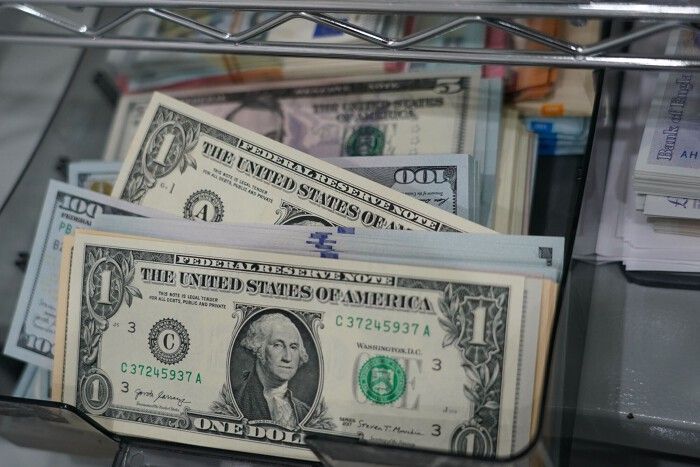Share
Homepage
News
When the Role of the USD in Foreign Exchange Reserves Wavers
When the Role of the USD in Foreign Exchange Reserves Wavers
14 tháng 8 2024
Although speculation about the weakening of the USD may be exaggerated, data from the Atlantic Council shows that the world is indeed using the USD significantly less compared to the early years of this century.

According to the Atlantic Council's USD Dominance Index, the share of the "greenback" in global reserves stood at 58% in 2024, a 14 percentage point decrease from 2002.
The Atlantic Council report states that the USD has maintained its position as the world's leading reserve currency since World War II. However, in recent years, particularly since the Russia-Ukraine conflict and the G7's increased use of financial sanctions, some countries have sought to diversify away from the USD.
The pace of de-dollarization has accelerated in recent years, with researchers identifying the rise of the BRICS group as a significant factor driving this trend. The report notes, “In the past 24 months, BRICS members have actively promoted the use of national currencies in trade and transactions. At the same time, China is expanding its alternative payment system for trade partners and seeking to increase the global use of the RMB.”
Atlantic Council researchers identify BRICS as a potential challenge to the USD's dominance, given BRICS' growing share of global GDP and the intention of each member country to conduct more transactions in their national currencies, with the RMB having the highest potential to compete with the USD as a trade and reserve currency.
The report highlights two key indicators of the growing strength of China's alternative financial infrastructure: "China's currency swap agreements with BRICS countries and members of the Cross-Border Interbank Payment System (CIPS).” Researchers noted that from June 2023 to May 2024, “CIPS added sixty-two direct members and now includes 142 direct members and 1,394 indirect members.”
The report notes that SWIFT remains the leader, with over 11,000 connected banks. However, since direct CIPS members can conduct transactions without relying on SWIFT or the USD, traditional measures of RMB usage may underestimate the currency's actual value.
Nevertheless, despite China's progress in attracting partners to CIPS, researchers suggest that the USD's role as the primary global reserve currency remains solid in the short and medium term.
The report indicates that the USD continues to lead in foreign exchange reserves, trade invoices, and global currency transactions. It mentions that all potential challengers, including the euro, are less likely to threaten the USD's position in the near future.
Regarding the development of an internal BRICS payment system, the Atlantic Council observes that negotiations are “in the early stages, but members have reached bilateral and multilateral agreements, focusing on central bank digital currencies (CBDCs) and currency swap agreements.”
Researchers believe these agreements might be difficult to scale due to regulatory and liquidity issues but could eventually lay the groundwork for a currency exchange platform.
While the RMB is considered the greatest threat to the USD’s position, recent difficulties in China, including a real estate crisis, have caused the RMB to lose some of its status compared to the USD in foreign reserves.
The report states that in the final quarter of 2023, the RMB’s share in global foreign reserves decreased from a peak of 2.8% in 2022 to 2.3%, despite the government's active support for RMB liquidity through currency swap agreements.
The report explains that reserve managers outside the country may view the RMB as a currency with high geopolitical risk due to concerns about China's economy, the government’s stance on the Russia-Ukraine conflict, and escalating tensions with the US and the G7.
Based on the six "essential characteristics of a reserve currency" outlined by the Atlantic Council, the euro is the most suitable currency to become the primary reserve currency after the USD, followed by the RMB.
All information on our website is for general reference only, investors need to consider and take responsibility for all their investment actions. Info Finance is not responsible for any actions of investors.